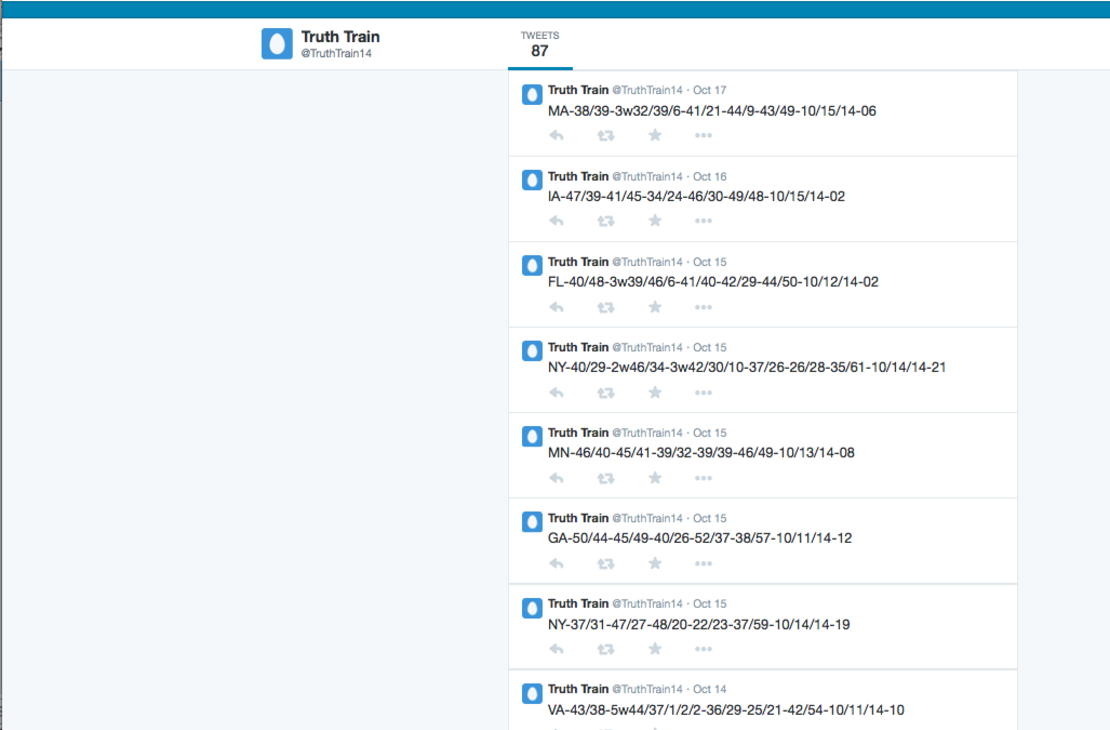Story highlights
A Democratic group filed a complaint against the GOP for using Twitter to secretly communicate
GOP groups used the accounts to send messages between campaign committees and outside groups
Experts are divided on the legality
A Democratic group says it will file a formal complaint with federal regulators against three Republican organizations after a CNN investigation revealed that they shared internal polling data before the midterm elections by posting the information on anonymous Twitter accounts.
The liberal advocacy group American Democracy Legal Fund alleged in a complaint meant to be filed Monday to the Federal Election Commission that the National Republican Congressional Committee, the American Action Network and American Crossroads broke federal rules that prohibit coordination between campaign committees and outside groups.
“The NRCC and outside groups appear to have engaged in illegal coordination through sharing internal polling data,” according to the complaint, which was provided to CNN by American Democracy Legal Fund. “By hiding their communications on a public website, Respondents intentionally tried to create a loophole in the coordination rules. Such an intentional effort to knowingly flout campaign finance laws cannot be condoned.”
The complaint is based on a CNN report that detailed how the groups provided valuable polling data by posting it on Twitter accounts in a secret code. Even though the posts were gibberish without the code, posting the information on a public website could have provided a work-around to FEC anti-coordination rules and regulations that require outside polling data shared with campaign committees to be reported as a donation. Coordination could allow campaigns, which cannot accept unlimited donations, to unfairly use the resources of outside groups, which can accept unlimited and anonymous donations.
READ: How the GOP used Twitter to stretch election laws

But the American Democracy Legal Defense Funda complaint argues that since the Twitter accounts could only be found and understood by those with prior knowledge of their existence, the activities don’t meet the threshold of being considered “public.” Further, according to the complaint, allowing the tactic would “send a dangerous message to candidates” that they can skirt election rules by encrypting the information shared.
“If the Commission were to find that Respondents did not engage in illegal coordination, then it would be sending the dangerous message to candidates, party committees, and outside organizations that they can coordinate their efforts so long as they nest their communications—no matter how cryptic or hidden—in a publicly available forum,” the complaint reads. “This is the wrong outcome.”
Spokespeople for the NRCC, American Action Network and American Crossroads did not respond to a request for comment.
READ: GOP officials deny knowing about coded Twitter accounts
Republicans aren’t the only ones using Twitter to communicate between groups that technically shouldn’t be coordinating. Last week the Huffington Post revealed that the Democratic Congressional Campaign Committee had used a Twitter account to aggregate details about where they would place ad buys. The Democratic account differed from the Republican ones in that it clearly labeled the intent of the profile and provided the code for how to decipher the tweets. A DCCC spokesman confirmed that they had used the account during the 2012 election, but that the information posted was already publicly available anyway.
Republicans used at least two Twitter accounts to transmit polling data. One account used the name Bruno Gianelli, a character from the TV show The West Wing who advocated the use of soft money to influence elections.
Campaign finance law experts told CNN that even the posts disguised with a secret code could be legal because of the public nature of the communications.
“It may bend common sense, but not necessarily the law,” said Daniel Tokaji, a professor of Constitutional Law at Ohio State University, told CNN. “A lot of things you and I would consider coordination are not coordination under the law. I don’t think sharing polling data is going to be enough to establish that the campaign was materially involved in decisions about content, target audience or timing.”
It is unclear whether the FEC, which will hold a hearing to determine whether to issue new campaign finance rules in February, will respond to the complaint.
Officials from the commission said they could not comment on specific cases, but one commissioner told CNN that past lack of action from the agency has emboldened groups to stretch the boundaries of the law.
“The reality is I think there are a lot of people out there who have a fair degree of confidence that there isn’t going to be any serious enforcement at the FEC so they can pretty much get away with whatever they want,” FEC Commissioner Ellen Weintraub told CNN. “It’s a very sad state of affairs.”


